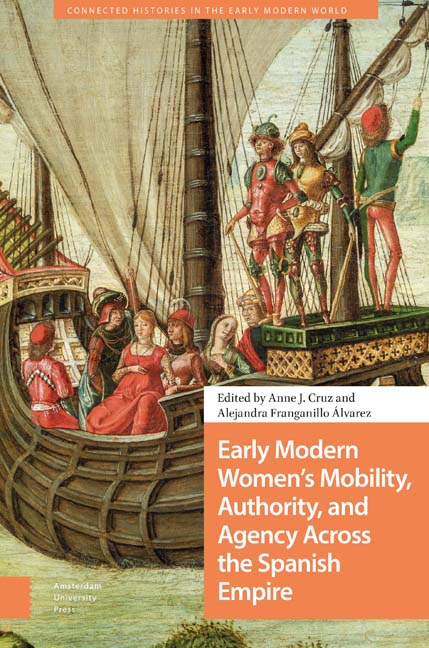6 - Travel and the Illegible Body in the Historia de la Monja Alférez
Published online by Cambridge University Press: 08 May 2024
Summary
Abstract
Catalina de Erauso (1592–1650), known as the Monja Alférez (Lieutenant Nun), emerges as a unique figure who transformed from Catalina, the Basque daughter cloistered in a Spanish convent, to Antonio, the violent New World soldier whose efforts on behalf of the Spanish Empire earned favors from Philip IV and Pope Urban VIII. This chapter examines Erauso's traveling body in the autobiographical Historia de la Monja Alférez (1625) as both masculine and feminine, durable and vulnerable, virgin and scoundrel. Ultimately, the public derives pleasure from Erauso's transgressive body and suspenseful odyssey, which legitimizes the protagonist's participation in Spain's imperial project and contributes to the Iberian Peninsula's imperial gaze toward the space of the New World and its inhabitants.
Keywords: Catalina de Erauso, Lieutenant Nun, New World travels, transsexuality
In early modern Spanish literature, women's travel narratives employed various strategies to contest gender norms that worked to enclose women's bodies and voices. Many traveling women harnessed the public's fascination with spectacle to navigate social relationships and authorize alternative subjectivities. The Monja Alférez, or Lieutenant Nun, emerges as a unique narrative voice, due to her real-life transformation from Catalina de Erauso, a noble Basque daughter cloistered in a Spanish convent, to Antonio de Erauso, the violent soldier whose efforts on behalf of the Spanish Empire in Chile earned official favors from Philip IV of Spain and Pope Urban VIII. Erauso's travel story and singular performance of gender captured the attention of the seventeenth-century public, and the Lieutenant Nun's genre-bending travel narrative continues to attract and confound twenty-first-century scholars.
The construction of Erauso's traveling body in the autobiographical narrative Historia de la Monja Alférez (1625) plays into the Baroque audience's affinity for spectacular oddities and ambiguous identities. Transatlantic travel allowed Erauso to create a body that is both masculine and feminine, durable and vulnerable, scoundrel and innocent virgin. Close readings of the text reveal the productive ways the author uses the construction of this fluid and illegible body to manage relationships with authority figures on both sides of the Atlantic. Ultimately, Erauso's contemporaries and the readers derive pleasure from Erauso's transgressive body and suspenseful odyssey, and these witnesses become part of Erauso's story.
- Type
- Chapter
- Information
- Publisher: Amsterdam University PressPrint publication year: 2024



